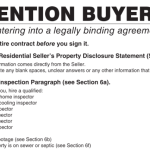Most homebuyers today are stuck paying 6–7% mortgage rates. But smart and patient buyers are snagging 2–3% rates—by using a powerful (but little-known) strategy called loan assumption.
With about 35,000 homes in the Phoenix area having assumable loans and favorable rates, there are more opportunities than most think. Think…. this could save you hundreds—sometimes over $1,000—per month on your mortgage.
So… what is loan assumption?
Loan assumption means you, as the buyer, take over the seller’s existing FHA or VA mortgage—including their low interest rate and remaining loan term.
👉 Example:
A seller has a mortgage of $400,000 at 2.26% interest with 26 years left.
You assume that mortgage. That’s your rate. That’s your term. Simple as that.
Now imagine that loan attached to a $450,000 house.
The seller has $50K in equity, so you cover that with cash (or a combination of cash and a second loan). But the monthly savings from the low interest rate? Game-changing.
Why this matters to you?
Assuming a low-rate loan doesn’t just save money—it can unlock a more expensive home for the same monthly payment as a cheaper one at today’s higher rates.
Even if you use secondary financing to bridge the gap, you’re often still way ahead financially.
Can YOU do this?
Maybe. If you can qualify for a loan right now, and you have some cash (or would have cash if you sold your current home), you might be the perfect candidate.
Hard to know without a conversation, so give me a call if you want to find out if it’s right for you – or if you just want to ask more questions: 623-439-8390
I can also walk you through the process, so you can get as nitty gritty as you’d like.
👉 Text “Assumption” to 623-439-8390 to get started.
Or just call me directly: John Harding – 623-439-8390
Questions Most People Ask Me:
Q: Why wouldn’t everyone do this?
Not all homes qualify. It takes patience, some cash, and an expert guide (that’s me!).
Q: Why don’t lenders advertise this?
Because they don’t make money when old loans are assumed. But you do.
Q: Isn’t this the same as “subject to” deals?
Nope. This is a clean handoff. You take over the loan legally and officially.
⏳ These Deals Won’t Last Forever
Once equity gaps grow too large, these sweet loan assumptions will be too difficult for most to afford the cash gap.
Right now is your window.
📞 Call John Harding now: 623-439-8390
Or just text “assumption” and I’ll help you spot the best deals before someone else grabs them.





